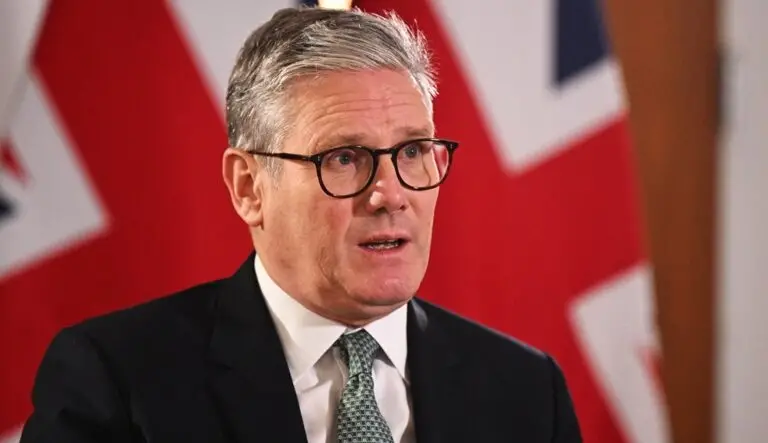LONDON, United Kingdom — British Prime Minister Keir Starmer issued a firm warning to businesses, calling for a greater commitment to training domestic workers as part of his strategy to reduce reliance on migration. Starmer emphasized that his government will “not tolerate” a long-term failure to invest in local talent development, as aired in comments on Wednesday.
The UK has witnessed a significant rise in net migration in recent years, with a record 764,000 people entering the country in 2022. The issue has been driven largely by non-EU citizens, contributing to the political debate since the Brexit referendum in 2016. The country’s departure from the European Union in 2020 marked the end of automatic work rights for EU nationals, leading to labor shortages in key sectors such as construction and healthcare.
While Starmer acknowledged that certain industries may still require migrant workers in the short term, he made it clear that his administration would not allow businesses to repeatedly rely on overseas labor without addressing the underlying issues. “If firms need construction or care workers, we won’t adopt an anti-business stance,” Starmer told BBC radio. “But I’m not going to tolerate this year after year after year.”
The prime minister’s comments come amid mounting pressure on the government to lower migration rates, including both undocumented migrants arriving on England’s southern coast and skilled workers entering the country with employment visas. Starmer’s government has introduced new measures aimed at cutting historically high levels of net migration. Among these initiatives are annual skills shortages assessments and stricter rules surrounding visa sponsorships.
According to a government statement, industries most dependent on overseas workers will face increased scrutiny to ensure they are addressing their failure to cultivate the necessary skills within the UK. “Sectors most reliant on overseas workers will be targeted to ensure they are addressing their failure to invest in skills here in the UK,” the statement read.
Starmer underscored the alarming trend of visa applications for roles that could have been filled by homegrown talent, noting that UK apprenticeships in key industries have seen a sharp decline. “That signals to me that something is going fundamentally wrong,” Starmer said.
The prime minister, who was speaking after his first Labour party conference as the nation’s leader, emphasized the need for a robust skills strategy to reduce dependency on migration. He expressed his desire to see businesses invest in training UK residents to meet the country’s labor needs, stating, “I want to see a skills strategy that makes sure we’re less reliant on migration, that we’ve got the right skills we need in this country.”
While reaffirming the valuable role that migration has played in supporting the UK’s economy and public services, Starmer highlighted that many young people in the UK have been let down by a lack of training opportunities. The prime minister’s speech signals a renewed focus on developing a skilled workforce from within the country, a move that he believes will ultimately drive down migration and strengthen the domestic job market.
The challenge of balancing migration with the UK’s economic needs has long been a divisive issue. However, Starmer’s strategy reflects a proactive approach to reshaping the workforce, with an emphasis on local skills development and long-term sustainability for British industries.






